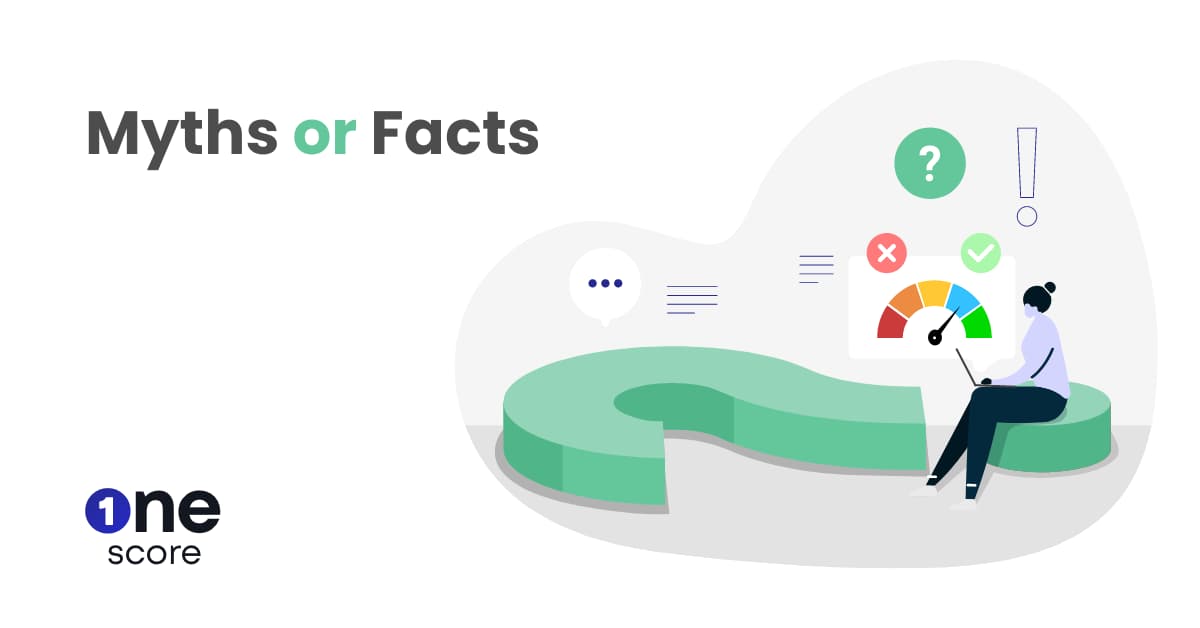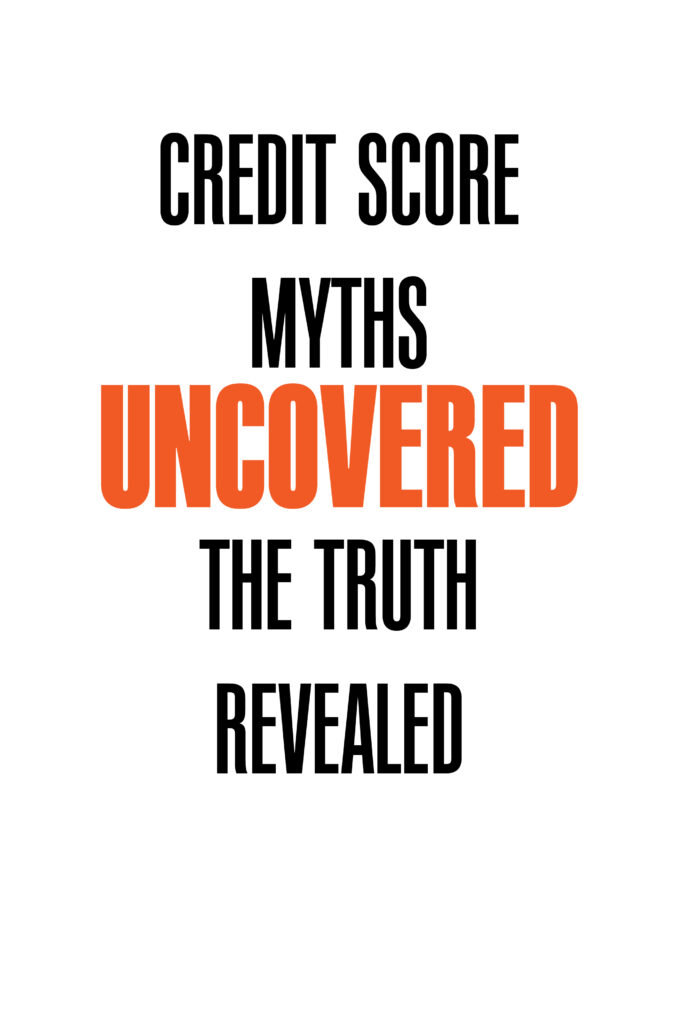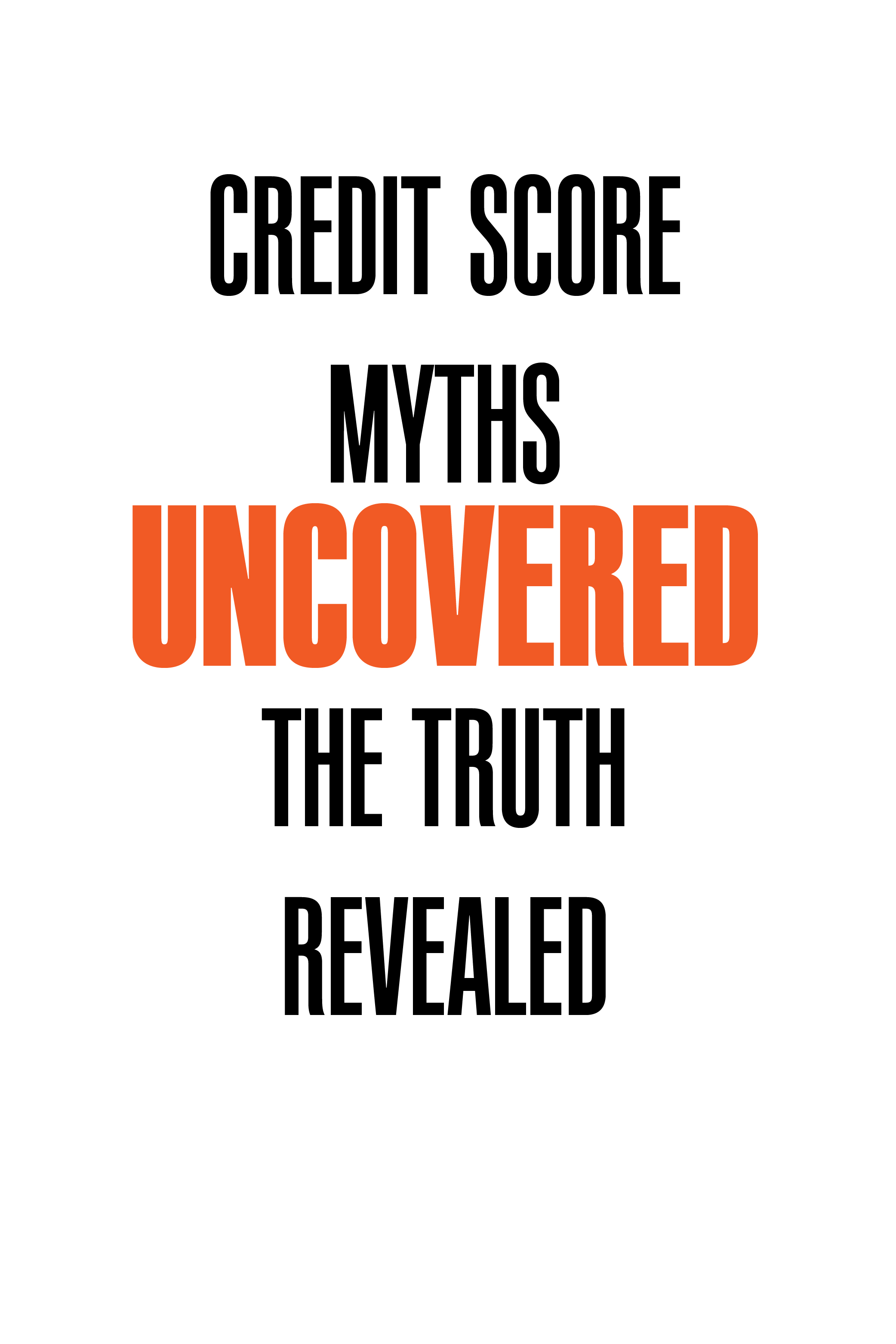Many believe checking your credit score lowers it. This is a myth.
Credit scores often spark confusion and misconceptions. Many myths surround how scores are calculated and what affects them. Understanding the facts can help you manage your credit more effectively. A common myth is that checking your credit score frequently will hurt it.
In reality, personal checks, known as “soft inquiries,” do not impact your score. Another myth is that closing old accounts will improve your score. Closing accounts can actually lower your score by reducing your available credit. Knowing the truth behind these myths is crucial for maintaining a healthy credit profile. By debunking these myths, you can make better financial decisions and improve your credit score.
Introduction To Credit Scores
A credit score is a crucial number in your financial life. Many myths surround credit scores. This blog aims to clear up these misconceptions.
What Is A Credit Score?
A credit score is a number representing your creditworthiness. Lenders use it to decide if you are a good borrower. Scores range from 300 to 850. Higher scores indicate better creditworthiness.
Credit scores get calculated based on various factors. Payment history, amounts owed, and credit history length are key elements. Your score reflects your financial behavior.
Importance Of Credit Scores
Credit scores are important for several reasons. They affect your ability to get loans and credit cards. A high score can get you better interest rates.
Landlords may check your score before renting to you. Insurance companies also use scores to set premiums. Good credit can save you money in the long run.
| Score Range | Rating | Impact |
|---|---|---|
| 300-579 | Poor | High risk, hard to get credit |
| 580-669 | Fair | Some lenders may approve |
| 670-739 | Good | Most lenders will approve |
| 740-799 | Very Good | Better rates and terms |
| 800-850 | Excellent | Best rates and terms |
Maintaining a good score is essential. Pay bills on time and keep balances low. Regularly check your credit report for errors.
Common Credit Score Myths
Many people believe in myths about credit scores. These myths can be harmful. Understanding the truth can help you manage your credit better. Let’s debunk some common credit score myths.
Myth: Checking Your Score Hurts It
Many people think checking their credit score will hurt it. This is not true. Checking your own score is called a “soft inquiry.”
Soft inquiries do not affect your credit score. Only “hard inquiries” do. Hard inquiries happen when you apply for a loan or credit card.
So, you can check your score as often as you like. It is good to keep track of your score. This helps you stay informed.
Myth: Closing Accounts Improves Your Score
Closing old accounts might seem smart. But it can actually hurt your score. Closing accounts reduces your available credit.
This can increase your credit utilization ratio. A higher ratio can lower your score. It is better to keep old accounts open, even if you do not use them.
Here is a table to explain how closing accounts affects your credit score:
| Action | Effect on Credit Score |
|---|---|
| Keeping accounts open | Maintains available credit |
| Closing old accounts | Reduces available credit |
| High credit utilization ratio | Lowers credit score |
Always think before closing an account. It might not help your score.
Truth About Credit Inquiries
Many people worry about credit inquiries. They believe inquiries can harm their credit scores. But not all inquiries are equal. Understanding the difference helps manage your credit effectively.
Hard Vs. Soft Inquiries
Credit inquiries come in two types: hard and soft. Each type affects your credit score differently.
| Type of Inquiry | Impact on Credit Score | Examples |
|---|---|---|
| Hard Inquiry | Can lower score | Applying for loans or credit cards |
| Soft Inquiry | No impact | Checking your own credit, pre-approved offers |
Impact On Your Score
Hard inquiries can lower your score by a few points. Multiple hard inquiries in a short period can have a bigger impact. Lenders see many inquiries as a risk.
Soft inquiries do not affect your score at all. Checking your own credit report is a soft inquiry. It’s important to check your credit regularly.
- Hard inquiries stay on your report for two years.
- Soft inquiries do not show up on reports to lenders.
Understanding these differences helps you maintain a healthy credit score. Be mindful of hard inquiries and check your credit often.
Role Of Credit Utilization
Credit utilization plays a key role in your credit score. It shows how much credit you are using. This ratio affects your credit score significantly.
Ideal Utilization Rate
The ideal credit utilization rate is below 30%. This means using less than 30% of your total credit limit. For example, if your limit is $1,000, keep your balance below $300.
Maintaining a low utilization rate is crucial. It tells lenders you manage your credit well. Keeping it below 30% can boost your credit score.
Effects Of High Utilization
High credit utilization can harm your credit score. Using over 30% of your credit limit is considered high. This shows you rely heavily on credit.
Let’s look at some of the effects:
- Lower Credit Score: Your score drops if utilization is high.
- Higher Interest Rates: Lenders may charge more interest.
- Reduced Credit Limits: Lenders might reduce your credit limit.
High utilization can signal financial stress. It may lead to fewer loan approvals. Keeping your utilization low is essential for a good credit score.
Misconceptions About Debt
Many people have misunderstandings about debt and its impact on their credit score. These misconceptions can lead to poor financial decisions. This section clears up common myths about debt.
Good Vs. Bad Debt
Not all debt is created equal. Good debt includes loans that help you build wealth or increase your income over time. Examples include student loans and mortgages.
Bad debt refers to loans that don’t offer a return on investment. Credit card debt and payday loans fall into this category. Understanding the difference helps you make smarter financial choices.
| Type of Debt | Examples | Impact on Credit Score |
|---|---|---|
| Good Debt | Student Loans, Mortgages | Positive if managed well |
| Bad Debt | Credit Card Debt, Payday Loans | Negative if not paid off quickly |
Paying Off Debt And Your Score
Many think paying off debt quickly boosts their credit score. This is partly true. Paying off debt lowers your credit utilization ratio, which can improve your score.
However, closing paid-off accounts can hurt your score. Keeping these accounts open shows a longer credit history. A longer credit history often boosts your score.
- Pay off debt to lower credit utilization.
- Keep old accounts open to maintain a long credit history.
Don’t fall for myths. Understand how debt impacts your credit score. This knowledge helps you make better financial decisions.

Credit: www.onescore.app
Credit Age And Its Impact
Credit age plays a crucial role in your credit score. It shows how long you’ve managed credit accounts. Many myths surround credit age, but knowing the facts can help you maintain a healthy score. This section will explain the length of credit history and the importance of old accounts.
Length Of Credit History
Your credit history length shows how long you’ve used credit. Lenders see a longer history as a sign of reliability. A longer history means you’ve handled credit well over the years. This can positively impact your score.
Here are some key points about the length of credit history:
- The age of your oldest account matters.
- The average age of all your accounts is also important.
- Regularly using credit helps maintain a good history.
Importance Of Old Accounts
Old accounts have a significant impact on your credit score. They show a long-term credit management history. Keeping old accounts open can benefit your credit score.
Consider these facts about old accounts:
- Old accounts increase the average age of your credit.
- They show a longer track record of credit usage.
- Closing old accounts can shorten your credit history.
To maintain a good score, keep old accounts open. Pay them on time and use them wisely.
| Factor | Impact |
|---|---|
| Age of oldest account | High |
| Average age of accounts | Medium |
| New accounts | Low |

The Reality Of Late Payments
Many people believe late payments are minor issues. This is a myth. Late payments can significantly impact your credit score. Understanding the reality of late payments is crucial for financial health.
Consequences Of Late Payments
Late payments can hurt your credit score. Credit bureaus record late payments. This can stay on your report for seven years. Interest rates on loans may increase. You may face higher insurance premiums. Late payments can also affect job applications.
Strategies To Avoid Them
There are ways to avoid late payments. Set up automatic payments. This ensures your bills are always paid on time. Create a budget to track your expenses. Use reminders on your phone or calendar. Pay bills as soon as you receive them. Contact your creditors if you face financial hardship.
| Strategy | Benefit |
|---|---|
| Automatic Payments | Ensures timely payments |
| Budgeting | Tracks expenses |
| Reminders | Prevents missed payments |
| Immediate Payment | Reduces risk of forgetting |
| Contact Creditors | Possible leniency |
Building And Repairing Credit
Building and repairing credit can feel overwhelming. Many myths surround this topic. It’s essential to know the right steps. Here, we debunk myths and provide clear guidance. Let’s dive into the steps to improve your score and avoid common mistakes.
Steps To Improve Your Score
Improving your credit score requires consistent effort. Follow these steps:
- Pay Bills on Time: Always pay bills by the due date.
- Reduce Debt: Aim to lower your total debt.
- Check Credit Reports: Regularly review your credit reports for errors.
- Avoid New Credit: Limit new credit applications.
- Maintain Old Accounts: Keep older accounts open.
Common Credit Repair Mistakes
Many people make mistakes while trying to repair credit. Here are common pitfalls to avoid:
- Closing Old Accounts: This can reduce your credit history length.
- Ignoring Small Debts: Even small debts can impact your score.
- Using Too Much Credit: Keep your credit usage low.
- Not Checking Credit Reports: Errors in reports can harm your score.
- Falling for Scams: Beware of credit repair scams promising quick fixes.
| Steps to Improve | Common Mistakes |
|---|---|
| Pay Bills on Time | Closing Old Accounts |
| Reduce Debt | Ignoring Small Debts |
| Check Credit Reports | Using Too Much Credit |
| Avoid New Credit | Not Checking Credit Reports |
| Maintain Old Accounts | Falling for Scams |
Conclusion And Key Takeaways
Understanding the truth behind credit scores can be challenging. Myths can easily mislead you. Here, we summarize the debunked myths and offer tips for maintaining a healthy credit score.
Summary Of Myths Debunked
- Myth 1: Checking your credit score hurts it.
- Fact: Checking your own score is a soft inquiry. It does not hurt your score.
- Myth 2: Closing old accounts improves your score.
- Fact: Closing accounts can lower your credit history length. This can hurt your score.
- Myth 3: Carrying a balance improves your score.
- Fact: Carrying a balance can lead to high interest. Pay your balance in full to avoid this.
- Myth 4: Income affects your credit score.
- Fact: Income is not a factor in calculating your score.
Final Tips For Maintaining A Healthy Score
- Pay your bills on time. This is crucial for a good score.
- Keep your credit utilization low. Aim for under 30%.
- Maintain a mix of credit types. This includes credit cards, loans, etc.
- Keep old accounts open. They help with credit history length.
- Check your credit report regularly. Ensure there are no errors.

Credit: www.cnbc.com

Credit: www.howtomoney.com
Frequently Asked Questions
What Are The Three Credit Score Lies?
1. Checking your credit score lowers it. 2. Closing old accounts improves your score. 3. Income affects your credit score.
Why Is My Credit Score Bad If I Have No Debt?
Your credit score may be low due to a short credit history, missed payments, or lack of credit diversity. Regularly check your credit report for errors.
Is It True That Checking Your Credit Score Bad?
No, checking your own credit score is not bad. It counts as a soft inquiry and does not affect your score.
What Is The Biggest Killer Of Credit Scores?
The biggest killer of credit scores is missed or late payments. Consistently paying bills on time is crucial.
Conclusion
Understanding the truth about credit scores can greatly impact your financial health. Dispelling these myths helps you make informed decisions. Regularly check your credit report and maintain good financial habits. Stay educated to keep your credit score in top shape.
Knowledge is power when managing your credit.

